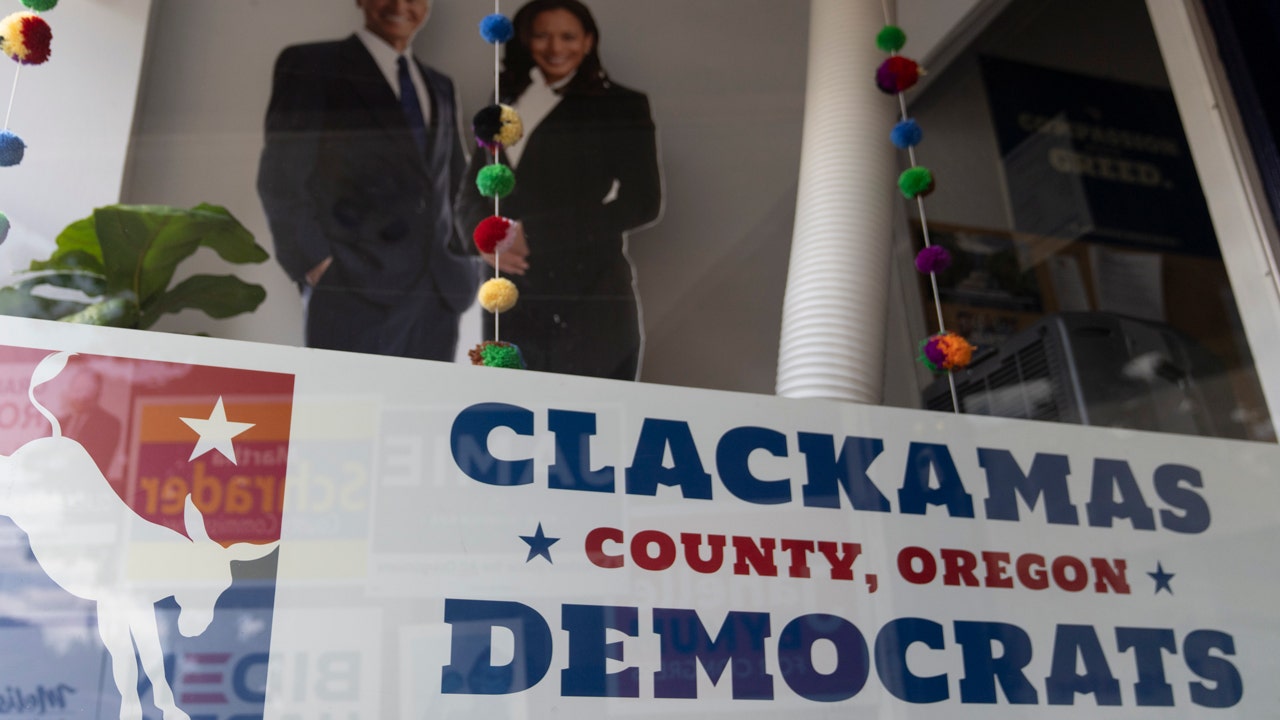Connecticut
CT state police ticket falsification allegations raise broad concerns in forum

For state Sen. Patricia Billie Miller, chair of the legislature’s Black and Puerto Rican Caucus, that Connecticut State Police may have written 25,000 fake tickets pertaining to racial profiling is a matter of rights.
Miller, spoke at a nearly full house at the downtown University of Connecticut campus as residents and others broached concerns about reports of the fake tickets and the impact it has on racial profiling. Milles assured those who gathered that police accountability is taken very seriously.
“I’ve spoken to the governor and he takes it very seriously. But your voices are important. …it’s very, very important for your voices to be heard,” she said. “This is about our rights. And this is about racial profiling. This is about all the money that we spent as legislators to get the data we need is gone down the tubes, because the numbers are skewed. The numbers mean nothing because of this false information.”
The forum, held by the Greater Hartford NAACP Branch, included a presentation of the Connecticut State Police Traffic Stop Data Audit 2014 to 2021 report findings by Connecticut Racial Profiling Prohibition Project Manager Kenneth Barone.
Barone said that the audit report was done due to the board’s concern that racial profiling records may have been intentionally falsified by troopers and constables. The audit of hundreds of thousands of tickets, was designed to determine whether there was merit to the concern and if so, the extent of any problems.
Barone said that overreported records with evidence of false or inaccurate data were more likely to be reported as white drivers and less likely to be reported as Black or Hispanic drivers, and records that were underreported by troopers were more likely to be Hispanic or some other race and less likely to be white drivers.
The report
He said that the audit contains general findings, which include the analysis identifying that there were a significant number of unsubstantiated infraction records that were submitted to the racial profiling database by troopers and constables during all years covered by the audit.
Other findings based on the analysis include that Barone and his staff have a high level of confidence that false and inaccurate records were submitted to the racial profiling database, he said.
The report says the most significant impact of false and inaccurate records occurred between 2014 and 2018. It also says that although the number of unsubstantiated records has declined, the problem persisted through 2021.
The report also said that while some infractions reported to the Centralized Infractions Bureau appear to have met the criteria for submission to the racial profiling system, they were not reported, which the report says is a violation of requirements of the Alvin W. Penn Racial Profiling Prohibition Act.
The report’s analysis found the demographics recorded for records where there is a high level of confidence that the information is false or inaccurate made a substantive and statistically significant impact on previously published analyses.
The report also suggests a historical pattern and practice among some troopers and constables of submitting infraction records that were likely false or inaccurate to the racial profiling system, with the issue appearing to have been more prominent in Troop F in the Central District and throughout all the troops in the Eastern District.
‘It still contributed to racism overall’
Following Barone’s presentation, forum attendees posed questions and voiced their concerns.
National Organization of Black Law Enforcement Executives Connecticut chapter member Gary Wallace asked whether there would be an opportunity to know the motivation behind falsifying tickets.
Barone said that he can only speak to the four investigations that the state police have completed and made public.
“We didn’t investigate, we didn’t go out and interview people. But in those four cases, they did ask them and the answers vary. One trooper said, it was in the report that Hearst Media made public, that they were having trouble at home and they didn’t want to get transferred to another troop, and they needed to appear more productive,” Barone said.
“And so they were entering record. They were making stops that were false, so their supervisor would be satisfied. But there were different versions of that, which the state police articulated in those investigations. As we say in the report, trying to answer that question…we’re data people, and that’s for another entity,” he said.
University of New Haven faculty member Lorenzo M. Boyd said he wondered if something worse could be happening, as there is only data for infractions, not traffic stops with written or verbal warnings.
Connecticut Racial Profiling Prohibition Project Senior Policy Analyst James Fazzalaro said information on warnings is part of their database, but while they have an independent way to verify accuracy of stops that result in infractions, warnings do not get reported to any specific place, whether they are issued locally or by state police.
“To do the same kind of an analysis of warnings, we would have to figure out how to basically do the same kind of comparison we did here for infractions,” he said.
Fazzalaro said it is complicated because since the COVID-19 pandemic, state police results shifted from infraction toward warnings, in part because concern about the virus meant troopers didn’t want long contacts with motorists. “But we’re now past that. And that dynamic is still in the data. So we’re starting to try to figure out whether we’re dealing with a permanent shift in stop outcomes that will make it more difficult to audit all of the data that we audited this time,” he said.
Both Senator Miller and Connecticut Racial Profiling Prohibition Project Advisory Board chair, former state Rep. William Dyson, encouraged anyone with concerns to make their voices heard to the state legislature and get involved when it comes to this issue.
ACLU CT Public Policy Advocacy Director Claudine Constant said that what has come to light is concerning.
“Regardless of the intent, regardless of what people meant to do, regardless of what it was if it was laziness or not. It still contributed to racism overall,” she said. “This is a system-wide issue, not just a couple of bad apples. Systemic, and I hope we can keep that in mind as we walk through the data and really start having these difficult conversations,” she said.
NAACP Connecticut State Conference President Scot X. Esdaile said the issue is extremely important because it involves racial profiling.
“These are people from our communities that are getting pulled over to speak from our communities that are being mistreated,” he said. “And now we’re finding out that there’s fake reports and fake tickets that are going out … but we also have to talk about accountability.
“These individuals need to be held accountable for their actions. We’ve fought vigorously to get these racial profiling laws to come into fruition. And now they’re skewing the numbers, they’re playing with the numbers. They’re striving to get promotions off of these false numbers, and they need to be held accountable. And we need to demand that they’re held accountable for this,” he said.

Connecticut
Opinion: CT has stupid high property taxes; a case for regional government

Each year, towns in Connecticut go through the painful budget process, and my town of South Windsor is no different. What is different is how politically charged this has become.
The basis of the politicalization seems to be rooted in “the tax issue.” This past year South Windsor went through the real estate re-evaluation process required by law every five years. With the rise in real estate values, those evaluations increased dramatically.
The good news; your house is worth more. The bad news; your tax burden is going up.
This did not sit well with many residents. So, in November, the town voted out our super-majority Democrat Party Town Council and voted in a super-majority Republican Party Town Council. The Republicans had campaigned on a platform of cutting taxes, which obviously appealed to many voters.
It waits to be seen whether new town leadership can hold the line on taxes without negatively impacting our schools, town services, head count, and more. This is not a partisan issue. The dread of higher taxes is not a Republican or a Democratic thing. I view it as a practical thing.
Let me explain. I moved to Connecticut in 2002 having lived most of my life in Maryland and Pennsylvania. I learned quickly after moving here that property taxes in Connecticut were not just high, they’re stupid high. And on top of that I had to pay a tax because I own a car. I’ve never paid a personal property tax in my life previously.
Why is this? It’s simple math – towns need revenue to support expenditures. The revenue side is static. Connecticut does not have a prolific tax base. There is no Boston generating billions in tax revenue. Our statewide population is that of a Minneapolis or Tampa. We are not getting a windfall. So practically speaking, the only place to adjust is on the expense side. And here we have a wonderful opportunity.
That opportunity is called, regional government. It is a state-wide solution. This state is a victim of an incredibly inefficient provincial system of government that goes back to colonial days. We have 169 little kingdoms each duplicating the costs of each other. This creates an insane level of cost redundancy. We operate in fiscal silos with few or no economies of scale.
And you know who agrees with this? Forty-eight other states, none of whom do government this way; only Connecticut and Rhode Island operate in this manner. Think about that enormous duplication of costs across; parks and rec, public works, elderly services, tax collection, legal advisers, economic development, health services, IT infrastructure and education, just to name a few budget line items that could be streamlined.
Back in the 60s and 70s there was an attempt to move to regional government but it was so poorly executed that it failed. The infrastructure already exists as we have counties and planning groups called Regional Councils of Government. For this massive change to occur we need the will of leaders. But the grassroots level is where it needs to start as elected officials will not want to cede power.
Voters have to assert their will.
This is not a solution for today. It would take years if not decades to get to regional government. But 48 states have proven it works. If we’re serious about reducing taxes this is one big swing of the bat can get us there. For young families planning a long-term future in Connecticut, this would benefit kitchen table issues. If we start now, maybe your kids won’t have to pay a tax to own a car.
Paul Bernstein is a retired marketing executive who lives in South Windsor.
Connecticut
CT train hits ATV on railroad tracks; incident under investigation by multiple agencies

A Connecticut rail train hit an ATV that was left on tracks near Berlin early Sunday, forcing about 20 passengers to have to change trains so the incident could be investigated, a Department of Transportation spokesman said.
The incident occurred a little before 11 a.m. on the tracks about three miles south of the Berlin Train Station, according to DOT spokesman Josh Morgan.
Morgan said no injuries were reported.
The ATV did not have a rider when the train hit it, but it had been left on tracks, Morgan said.
The tracks are owned by Amtrak but the train is owned by the state of Connecticut. The rail line runs between New Haven and Springfield.
Morgan said the train was northbound when it hit the unoccupied ATV. The passengers transferred to another train so they could reach their destinations, he said.
Morgan noted that no access is allowed to tracks and that any access to tracks is considered trespassing.
“It is incredibly dangerous to be anywhere near an active rail line,” he said.
Morgan said the ATV was removed and the train is out of service so it can be be inspected at the New Haven station. Other trains are running.
Morgan said as of Sunday “we do not really know” why the ATV was on the tracks. He said it remains under investigation by railroad officials, state and local police.
“They are trying to figure what it was doing there,” Morgan said, noting that officials also are seeking witnesses.
Connecticut
Renters' Rights Topic Of West Hartford Forum

WEST HARTFORD, CT — Those who pay rent instead of mortgages have rights too and a special forum in West Hartford on Tuesday, May 21, will look into just what those rights are.
Greater Hartford Legal Aid is hosting a free legal seminar on tenant rights at the Elmwood Community Center, 1106 New Britain Ave., West Hartford, on Tuesday, May 21, from 5:30 to 7 p.m.
The event will feature attorney Kelsey Bannon and is free and open to the public.
Items up for discussion, include:
- Leases
- Renter’s rights and responsibilities
- Pre-move-in inspections
- Discrimination
- Rent increases
- Security deposits
- Changes to Connecticut laws
Greater Hartford Legal Aid is a not-for-profit law office that gives free civil legal services to low-income people and seniors in the Hartford area.
They represent individual clients before courts and government agencies and groups of clients in complex litigation.
They also provide community legal education to empower people to know their rights and advocate for themselves.
GHLA collaborates regularly with the Town of West Hartford on numerous levels, particularly by providing free legal advice and representation for income-eligible residents.
Those attending can access the Elmwood Community Center via Burgoyne Street. Free parking is available.
The event is sponsored by West Hartford Social Services.
-

 News1 week ago
News1 week agoSkeletal remains found almost 40 years ago identified as woman who disappeared in 1968
-

 World1 week ago
World1 week agoIndia Lok Sabha election 2024 Phase 4: Who votes and what’s at stake?
-

 Politics1 week ago
Politics1 week agoTales from the trail: The blue states Trump eyes to turn red in November
-

 World1 week ago
World1 week agoBorrell: Spain, Ireland and others could recognise Palestine on 21 May
-

 Movie Reviews1 week ago
Movie Reviews1 week ago“Kingdom of the Planet of the Apes”: Disney's New Kingdom is Far From Magical (Movie Review)
-

 World1 week ago
World1 week agoUkraine’s military chief admits ‘difficult situation’ in Kharkiv region
-

 World1 week ago
World1 week agoCatalans vote in crucial regional election for the separatist movement
-

 Politics1 week ago
Politics1 week agoNorth Dakota gov, former presidential candidate Doug Burgum front and center at Trump New Jersey rally






/cdn.vox-cdn.com/uploads/chorus_asset/file/22461385/vpavic_4547_20210421_0067.jpg)











